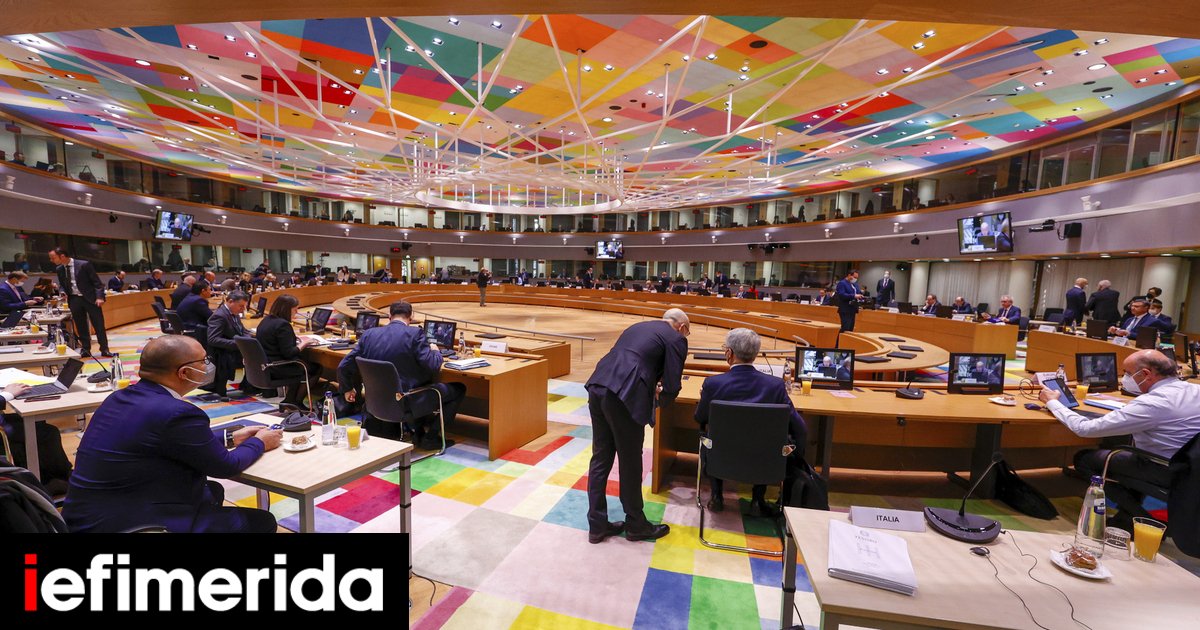
Today’s finance ministers’ conference call is hanging by a thread, because although the French side was sending optimistic messages yesterday, sources familiar with what is being discussed behind closed doors have only a very small basket.
The truth is that after the last meeting of the Economic and Financial Council twelve days ago, there is agreement or near agreement on 95% of what is included in the texts that constitute the new stability pact. However, according to sources in Ephemerida, the “war” is raging and it is difficult to predict whether it can end with a truce today, not to mention that the finance ministers will not have the opportunity to “well” and ferment, because they will. Discussion remotely, via video conference.
The “war” between Germany and Italy in the negotiations over the new Stability Pact
This time we are not talking about the usual “war” between North and South, because the countries of the South are simply not leaning against the wall, as has been the case in the past three or four years. However, we are talking about a “war” between Germany and Italy, which certainly cannot be predicted with certainty where it will end.
The information indicates that Italy is demanding more “loose” conditions to reduce its debts and more spending “space” that would help the Italian economy to “breathe” and then “cut” its debts. On the other hand, the Germans seem to have stuck to their position, insisting at least on the terms of the compromise proposal presented by the Spanish presidency, against the backdrop of their adventures with the Constitutional Court and the “voices” at home demanding a return to the treaty. Financial doctrine for everyone to join.
Greece’s position in the difficult deal
What is Greece’s position on the ongoing difficult deal? This is one of the few times that the Greek side does not demand special treatment and exemptions from the new rules, as all measurements and tests from European institutions and markets confirm that Greece has nothing to worry about, unless it remembers the past times. Specialized sources said: “We do not want exceptions. The momentum is positive for the Greek economy and we will benefit from it,” recalling that in the only case in which Athens made allegations that it has many allies, and for this reason it appears that the request “passes.”
This is the exclusion of defense spending from the excessive deficit measure, which in practice means that payments for equipment will “count” towards the deficit, according to Eurostat rules, but will not be taken into account in calculations of whether a country has exceeded the cap. 3% of the deficit. What remains to be clarified is whether there will be a “cut” in annual defense spending, which will be exempted and where it will fit. According to the latest available figures from NATO, Greece’s defense spending equals 3.01% of its GDP, the third highest after Poland and the United States.
The fact is that Greece would be positive for the corresponding exception or special treatment, with regard to investment-related expenditures, migration expenditures and expenditures – especially extraordinary ones – to deal with the impacts of climate change. Especially for the last two categories, further negotiations are ongoing at the level of Heads of State regarding a review of the Community’s budget, with proposals to increase European funds.
The new stability pact: Greece will not witness any surprises
Regarding the substance of the new stability pact, Greece has firstly ensured that it will not be exposed to any surprises when interest from the second note is “released”. He included it not only orally, but also in writing, in the preamble to the New Testament.
“Given the special composition of the outstanding Greek public debt, a significant amount of deferred interest payments will become due in 2033. The related extraordinary increase in debt to GDP should not be taken into account when applying the debt sustainability guarantee.” This simply means that the debt sustainability analysis, which will be the “key” to determining whether or not a country will be subject to supervision, will not be affected by this temporary increase, the text says.
“In any case, we expected faster rates of reduction in our debt, compared to the provisions of the new charter,” competent sources confirm, adding that there is no reason for concern for Greece.

“Hipster-friendly coffee fanatic. Subtly charming bacon advocate. Friend of animals everywhere.”





More Stories
F-16 crashes in Ukraine – pilot dies due to his own error
Namibia plans to kill more than 700 wild animals to feed starving population
Endurance test for EU-Turkey relations and Ankara with Greece and Cyprus